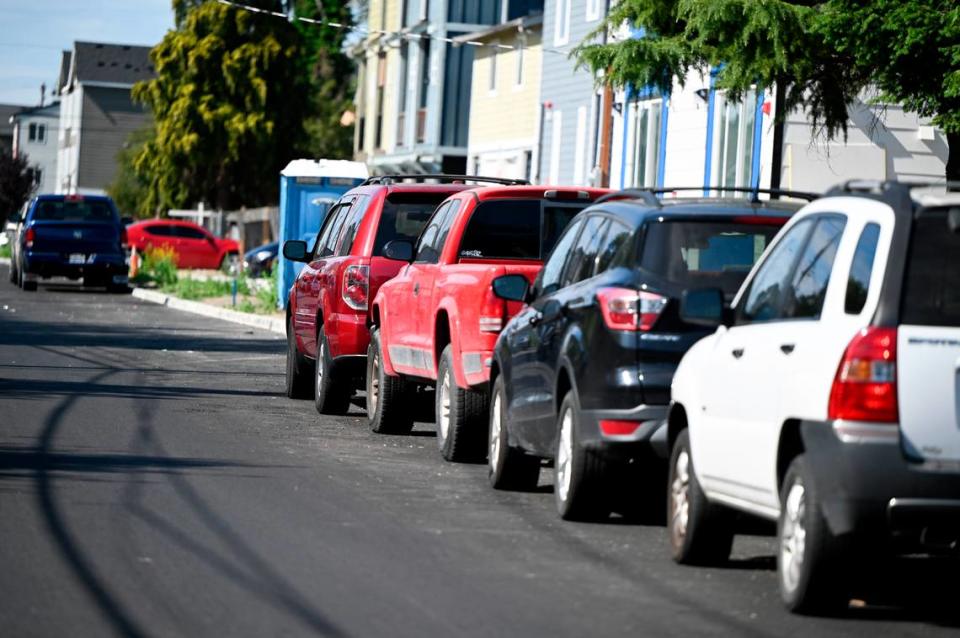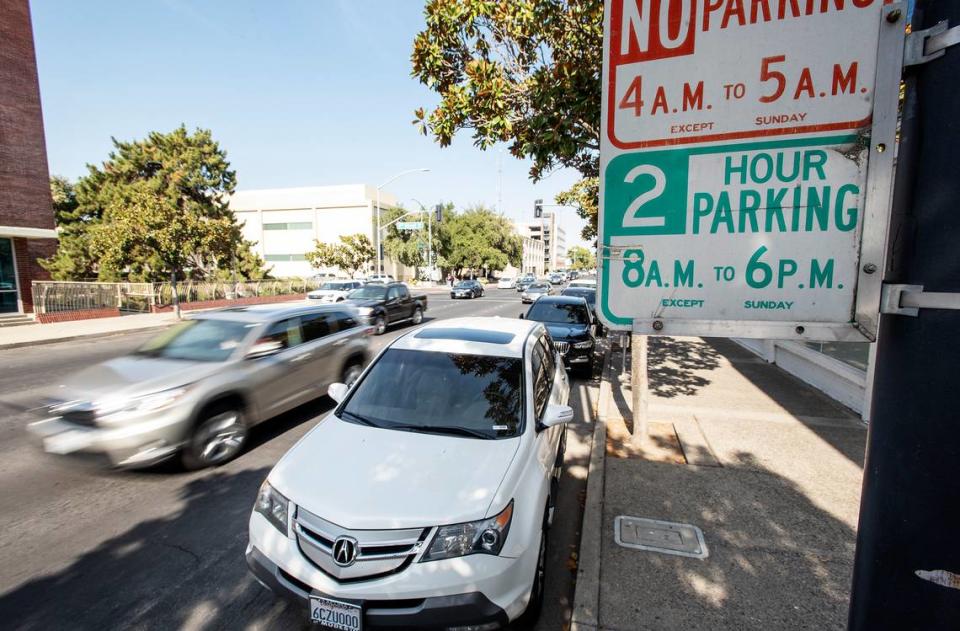Can I legally park in front of someone else’s house in Washington? What the law says
Have you ever been driving in a local neighborhood and noticed how many cars are parked on the street? Have you ever had trouble fitting two cars in opposite directions on a residential road because there are so many cars parked along the street?
It’s not an uncommon occurrence. Plus, if someone throws a large gathering, you might see cars parked up and down the street. So can someone legally park in front of your house? And how long are they allowed to stay there?
Here’s what we know on the law in Washington state about parking in front of someone else’s house.
Parking in front of WA property
In most cases, it is legal to park along the street in front of someone else’s property. You can’t park on their property without permission, but the street in front of their property is fair game.
Parking on the sidewalk cannot obstruct pedestrian traffic. If you have to park partially on the sidewalk, make sure there is enough space for someone to still comfortably walk past. It’s important to consider any disabled passerby who may need additional room for walkers or motorized scooters.

In Washington state, you are prohibited from parking:
Next to a car stopped/parked on the side of the street
On a sidewalk or street planting strip
In an intersection
On a crosswalk
Between a safety zone and adjacent curb
Along any street excavation or obstruction, if it would impact traffic
On any highway bridge or elevated structure
In a highway tunnel
On railroad tracks
Between roadways of a divided highway
Anywhere with signs posted prohibiting parking
In addition, the Revised Code of Washington specifies areas in which you can only park or stand still in your vehicle if you are picking up or dropping off a passenger. These are:
In front of or within five feet of a driveway
Within 15 feet of a fire hydrant
Within 20 feet of a crosswalk
Within 30 feet of traffic control signs and signals
Within 20 feet of a fire station driveway or 75 feet on the opposite street
Anywhere with signs prohibiting standing vehicles
Within 50 feet of a railroad crossing

Parking regulations in Tri-Cities
In Kennewick, vehicles cannot be abandoned on city streets. You also cannot leave a car in one public area for more than 72 hours, unless it is in front of your residence, in which case you have up to two weeks.
All parking in the city of Kennewick must leave at least ten feet of width in the roadway for free movement, according to the city code. In Richland, the requirement is 20 feet.
Commercial vehicles can park in the public right-of-way for a maximum of two hours while doing business in Kennewick. These vehicles cannot be stored in the public right-of-way outside of business operation.
You cannot park in a municipal parking lot for more than 24 hours in Richland. It is also prohibited to park in a hazard zone, which is marked by yellow paint on the curb.

In Pasco, different streets have different parking restrictions. Check for posted signs when parking or the city code before leaving. You cannot park on any street or municipal property for more than two weeks, or leave an abandoned vehicle out for more than 24 hours.

